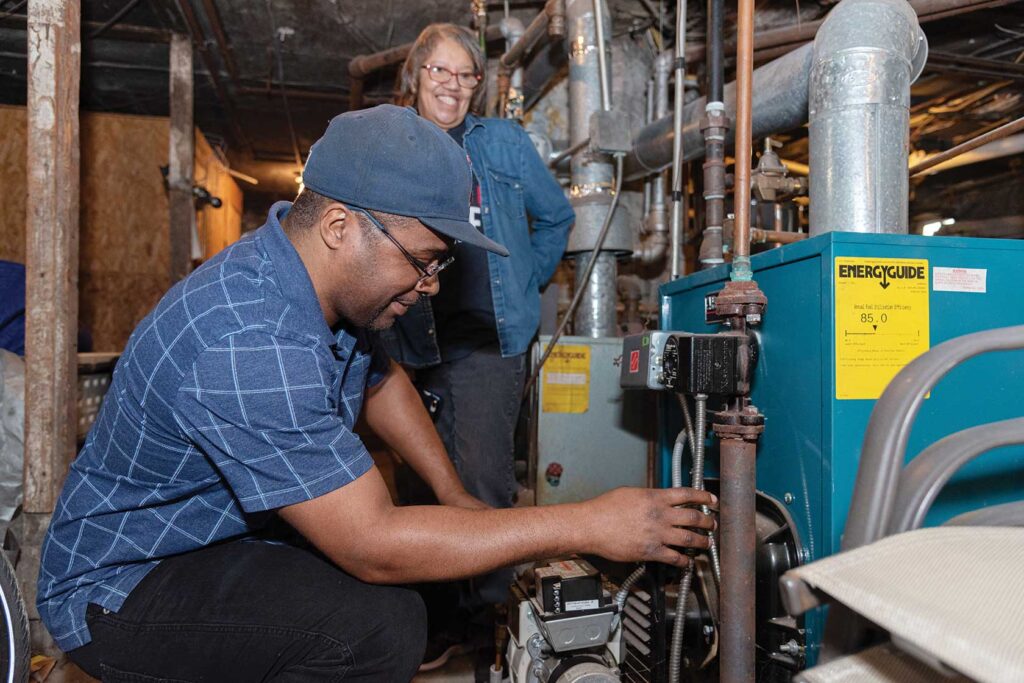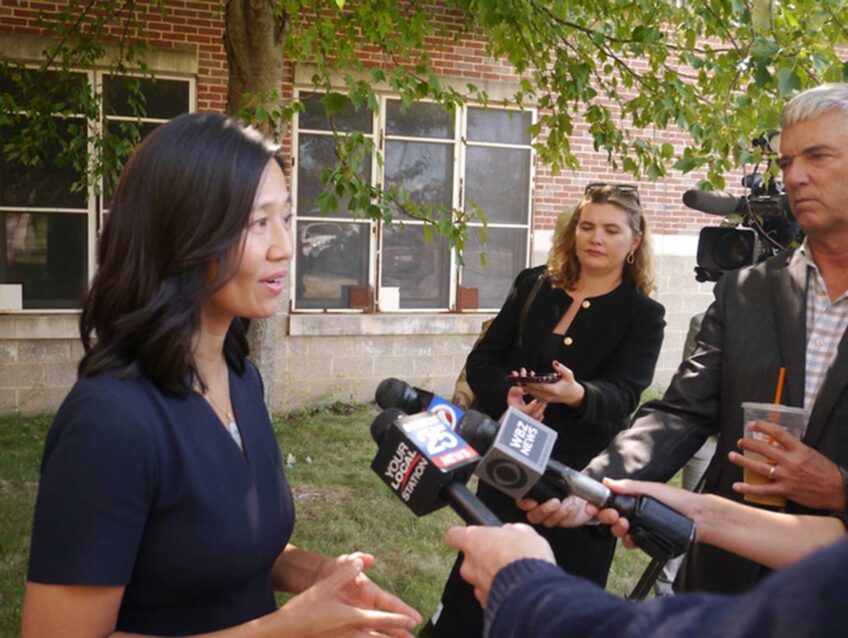With federal funding, Boston nonprofit helps families stay warm in winter

This year, Massachusetts received $144 million in federal funding for the Low-Income Home Energy Assistance Program, or LIHEAP, which helps select households reduce the costs of heating their homes in the winter.
Distributed yearly, the funds from the United States Department of Health and Human Services go toward aiding low-income families in the Greater Boston and the Mystic Valley areas to make it through the colder months.
“ABCD is so grateful to the U.S. Department of Health and Human Services for making this funding available for families and seniors who need oil deliveries and other heating payments,” said Sharon Scott-Chandler, president of Action for Boston Community Development, or ABCD, a nonprofit that distributes the funds to help families across the state, in a statement.
Initiated by Congress in 1981, the program provides all 50 states with federal funding to help residents with heating bills in the winter and cooling expenses in the summer. In Massachusetts, the program is known simply as the Home Energy Assistance Program, or HEAP, and provides financial assistance to families each year. Eligible families can get help for gas, electric, propane, or oil heating bills, which ABCD pays directly to the supplying vendors.
“This program really saves lives,” Scott-Chandler said in an interview.
The $144 million in funds received this year will allow ABCD to offer a maximum of $1,050 in assistance to families in Boston, Brookline, Newton, Malden, Medford, Everett, Melrose, Stoneham, Winchester and Woburn.
The amount of assistance provided varies depending on household size and income. To be eligible, the gross household income must be exactly or lower than 60% of the state’s median income.
Families can check their eligibility on the state of Massachusetts’ website and have until April 30, 2025, to apply in person or online free of charge. Applicants will need to provide photo identification, proof of income, and information about their household bills during the process.
Last year, ABCD helped over 21,000 families with their heating bills and is set to surpass that number this cycle. As of Dec. 13, the organization had already received 14,000 applications.
However, the funds the organization received this year are lower than in recent years, Scott-Chandler said. Last year, the federal government allotted approximately $235 million to Massachusetts, allowing for a maximum benefit of over $2,000 per family. During the pandemic, ABCD was able to offer up to $2,600 per household, supported in part by federal funding from the American Rescue Plan Act.
The $1,050 this year “will not take people through the winter,” Scott-Chandler said. “We will have people calling us in January [and] February saying they are out of their benefits. They don’t know how they’re going to pay their next bill. They don’t know how they’re going to get their next oil delivery. And so, we’ll be scrambling to try and find resources for people.”
For the many families who live on the margins and struggle to make ends meet, a lack of sufficient assistance could mean choosing between necessities such as food and medication and heating their homes.
In some cases, Scott-Chandler said, people may turn to unsafe methods to warm their homes like using electric heaters or stoves in emergency situations, which could potentially be harmful, particularly for families with children and older adults.
“People are already… cost-burdened by rent, by the cost of living and food going up. … So, I think that’s what we see, is that people have less,” Scott-Chandler said. “They’re making tough choices, choices they shouldn’t have to make to heat their homes.”
Scott-Chandler urged Congress to offer more support to the HEAP program.
ABCD was established in 1962 and designated Boston’s antipoverty agency under the Economic Opportunity Act of 1964. The organization offers programming that helps people in poverty, including workforce development, early childhood education and elder services.
The organization is currently running a “Winter Fund” to raise money to support families with their cold weather needs. The funds will go toward providing heat assistance not covered by HEAP, holiday meals and warm gear like coats, hats, mittens, and blankets.
ABCD also runs an annual toy drive during the holiday season. This year, the organization received more than 6,500 requests for toys and, as of Dec. 10, was falling significantly short of its goal. While the deadline to give toys was Dec. 13, the organization said it welcomes any donations thereafter.








